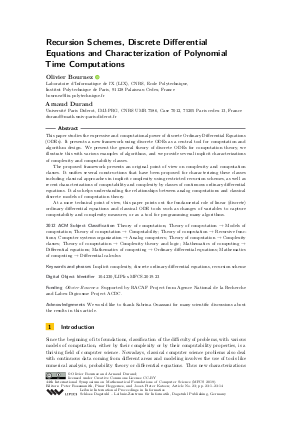LIPIcs.MFCS.2019.23.pdf
- Filesize: 0.49 MB
- 14 pages

 Creative Commons Attribution 3.0 Unported license
Creative Commons Attribution 3.0 Unported license





























Feedback for Dagstuhl Publishing